Juping Zhang
Deep Learning Based Predictive Beamforming Design
Feb 02, 2023
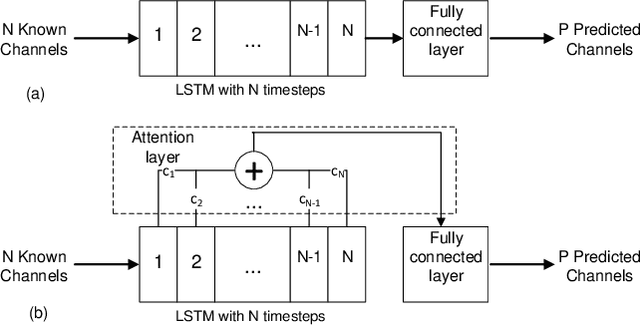
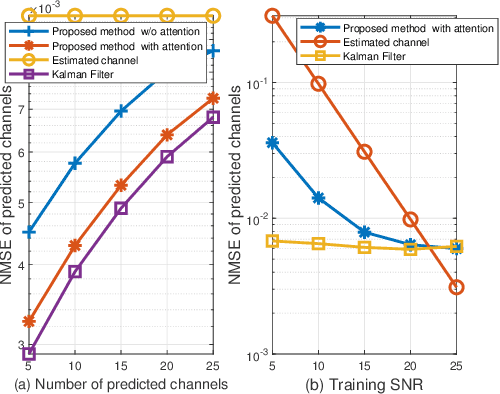
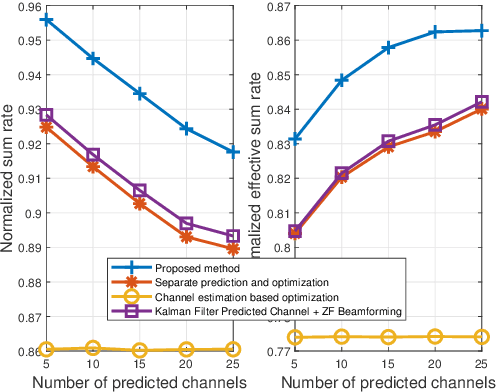
Abstract:This paper investigates deep learning techniques to predict transmit beamforming based on only historical channel data without current channel information in the multiuser multiple-input-single-output downlink. This will significantly reduce the channel estimation overhead and improve the spectrum efficiency especially in high-mobility vehicular communications. Specifically, we propose a joint learning framework that incorporates channel prediction and power optimization, and produces prediction for transmit beamforming directly. In addition, we propose to use the attention mechanism in the Long Short-Term Memory Recurrent Neural Networks to improve the accuracy of channel prediction. Simulation results using both a simple autoregressive process model and the more realistic 3GPP spatial channel model verify that our proposed predictive beamforming scheme can significantly improve the effective spectrum efficiency compared to traditional channel estimation and the method that separately predicts channel and then optimizes beamforming.
Embedding Model Based Fast Meta Learning for Downlink Beamforming Adaptation
Sep 19, 2021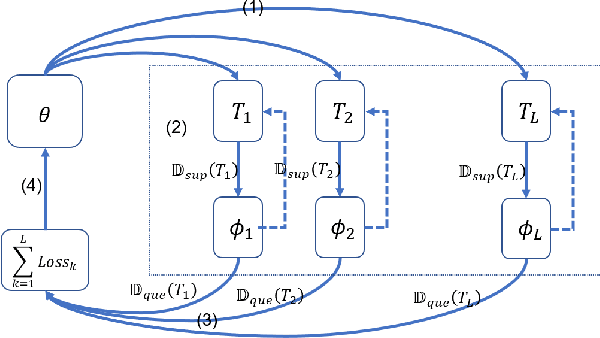
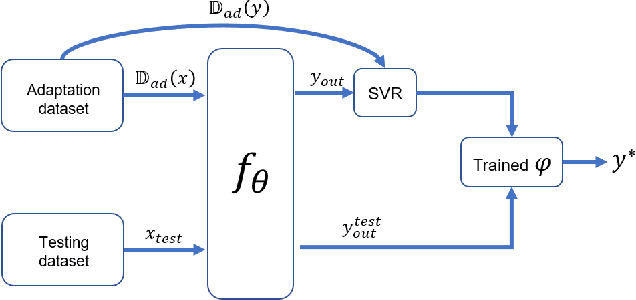
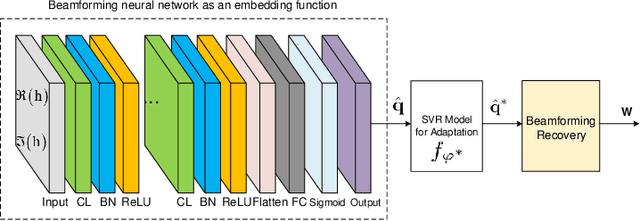
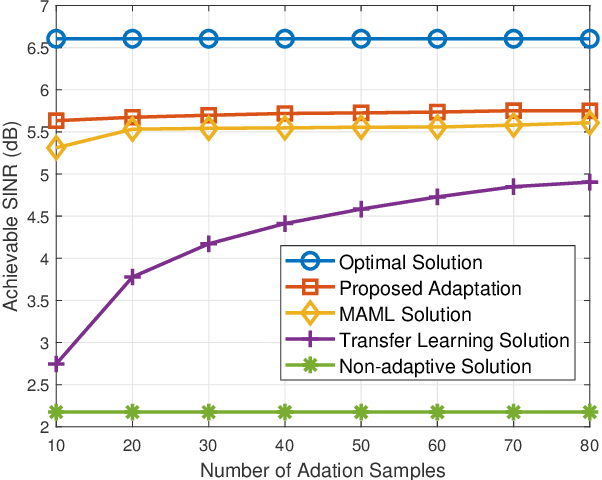
Abstract:This paper studies the fast adaptive beamforming for the multiuser multiple-input single-output downlink. Existing deep learning-based approaches assume that training and testing channels follow the same distribution which causes task mismatch, when the testing environment changes. Although meta learning can deal with the task mismatch, it relies on labelled data and incurs high complexity in the pre-training and fine tuning stages. We propose a simple yet effective adaptive framework to solve the mismatch issue, which trains an embedding model as a transferable feature extractor, followed by fitting the support vector regression. Compared to the existing meta learning algorithm, our method does not necessarily need labelled data in the pre-training and does not need fine-tuning of the pre-trained model in the adaptation. The effectiveness of the proposed method is verified through two well-known applications, i.e., the signal to interference plus noise ratio balancing problem and the sum rate maximization problem. Furthermore, we extend our proposed method to online scenarios in non-stationary environments. Simulation results demonstrate the advantages of the proposed algorithm in terms of both performance and complexity. The proposed framework can also be applied to general radio resource management problems.
Model-driven Learning for Generic MIMO Downlink Beamforming With Uplink Channel Information
Sep 16, 2021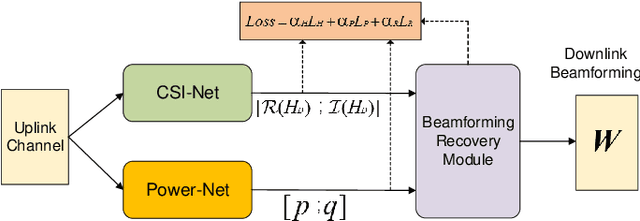
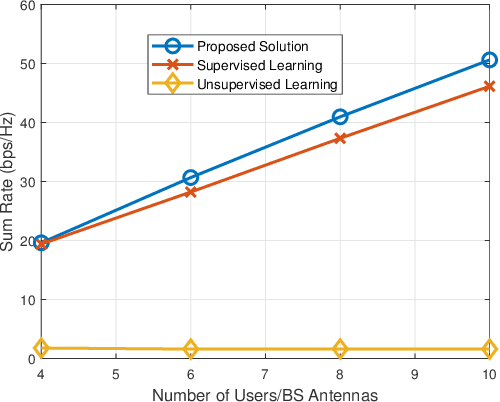
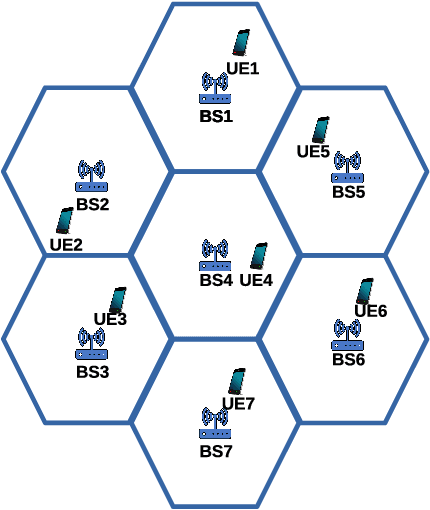
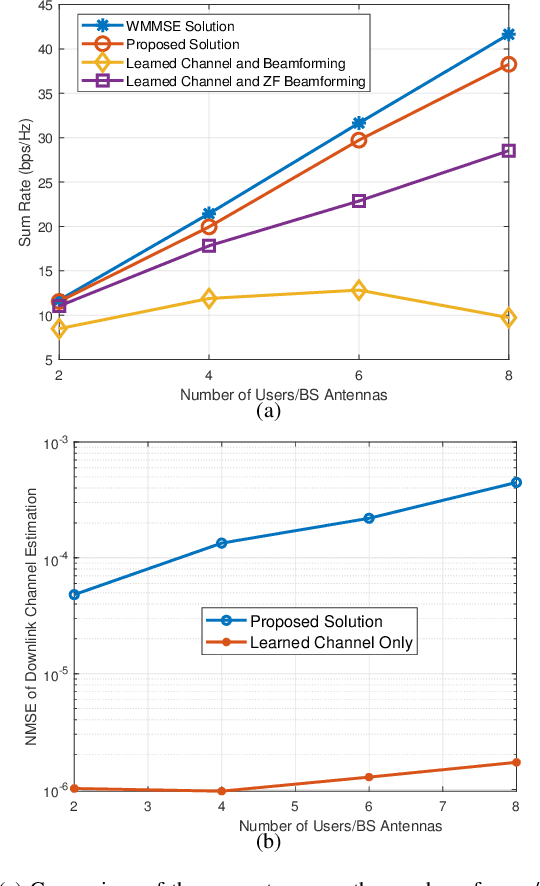
Abstract:Accurate downlink channel information is crucial to the beamforming design, but it is difficult to obtain in practice. This paper investigates a deep learning-based optimization approach of the downlink beamforming to maximize the system sum rate, when only the uplink channel information is available. Our main contribution is to propose a model-driven learning technique that exploits the structure of the optimal downlink beamforming to design an effective hybrid learning strategy with the aim to maximize the sum rate performance. This is achieved by jointly considering the learning performance of the downlink channel, the power and the sum rate in the training stage. The proposed approach applies to generic cases in which the uplink channel information is available, but its relation to the downlink channel is unknown and does not require an explicit downlink channel estimation. We further extend the developed technique to massive multiple-input multiple-output scenarios and achieve a distributed learning strategy for multicell systems without an inter-cell signalling overhead. Simulation results verify that our proposed method provides the performance close to the state of the art numerical algorithms with perfect downlink channel information and significantly outperforms existing data-driven methods in terms of the sum rate.
 Add to Chrome
Add to Chrome Add to Firefox
Add to Firefox Add to Edge
Add to Edge